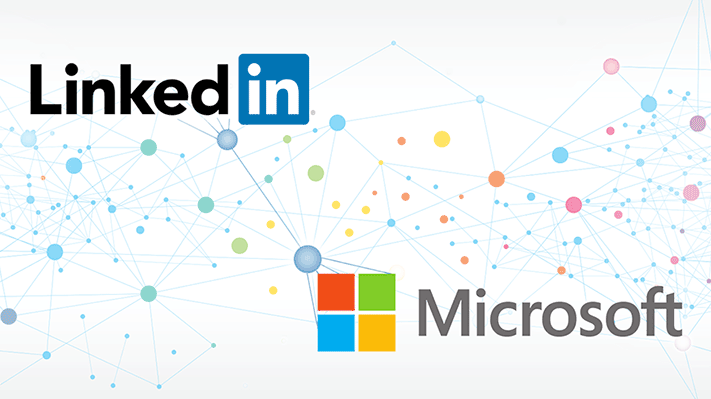LinkedIn’s sale is a sign of what’s to come for Twitter and other social media companies
When LinkedIn went public in 2011, it was heralded as the first in a new wave of social media companies landing on Wall Street.
Facebook, Twitter, Yelp and Groupon were months if not years away from their public offerings. Pinterest and Snapchat, meanwhile, were still in their infancy. LinkedIn, less sexy than these companies but still growing sales quickly, saw its stock more than double on its first day of trading from investor appetite for the seemingly unlimited potential of social media businesses.
With news of its $26.2 billion sale to Microsoft on Monday — the largest acquisition in Microsoft’s history — LinkedIn may also prove to be a harbinger of what’s to come for many of those social media companies that did end up going public.
Many of the flashy social networks that Wall Street once fawned over — even if it didn’t understand what exactly they do — are now looking for the exit door as the mood sours.
LinkedIn, like Twitter and Yelp, has seen its stock obliterated throughout much of the year as social media firms (other than Facebook) are experiencing slower growth, and investors are experiencing less patience for anything short of perfection, given the turbulent global market.
In February, LinkedIn stock was nearly halved overnight after a single disappointing earnings report. The plunge was so severe that the company’s CEO had to give a pep talk to his teamand later gave away his bonus to employees suffering from financial whiplash. Talks between Microsoft and LinkedIn are said to have begun just weeks before that.
“The spin-down/consolidation of that generation of companies is underway.”
Twitter, arguably the second most anticipated social media IPO after Facebook, has seen its market cap fall to less than $10 billion in recent weeks on lackluster turnaround efforts.
Paul Kedrosky, a venture capitalist, noted in a series of tweets last week that he now thinks it’s unlikely Twitter survives the year as a standalone company. Chris Sacca, one of Twitter’s largest investors, later highlighted the thread, calling it “fair points.”
Very fair points in this thread from a smart investor.https://twitter.com/pkedrosky/status/741321220130365446 …
On Monday, Kedrosky told Mashable that he thinks LinkedIn’s sale only makes a Twitter acquisition more likely. “The spin-down/consolidation of that generation of companies is underway,” he said by e-mail.
Sure enough, Twitter stock jumped as much as 8% in early trading Monday following the LinkedIn acquisition.
Twitter is far from the only one. Yelp reportedly explored a sale last year. Both Zynga and Groupon have long been seen as acquisition targets. All three are valued at barely $2 billion each on Wall Street — cheap by the standards of many tech giants — many of which have tens of billions of dollars in cash.
In short, if you’re a publicly traded social media company not named Facebook, you have problems right now. And even if you are Facebook, you’re not totally exempt from investor pressure.
Within minutes of the LinkedIn news, Andrew Left, a prominent activist short-seller announced plans to short Facebook, arguing it is “losing an extensive amount of relevancy.” Facebook shares dipped nearly 2%.
Mark Suster, a venture capitalist, likened LinkedIn’s stock collapse in February to the bankruptcy of Lehman Brothers in 2008, which set off a chain reaction on Wall Street. “I wonder whether LinkedIn’s stock market plunge in February 2016 might have a similar effect,” he wroteat the time.
Four months later, that idea is sounding a little less extreme.
Written by Seth Fiegerman of Mashable
0



